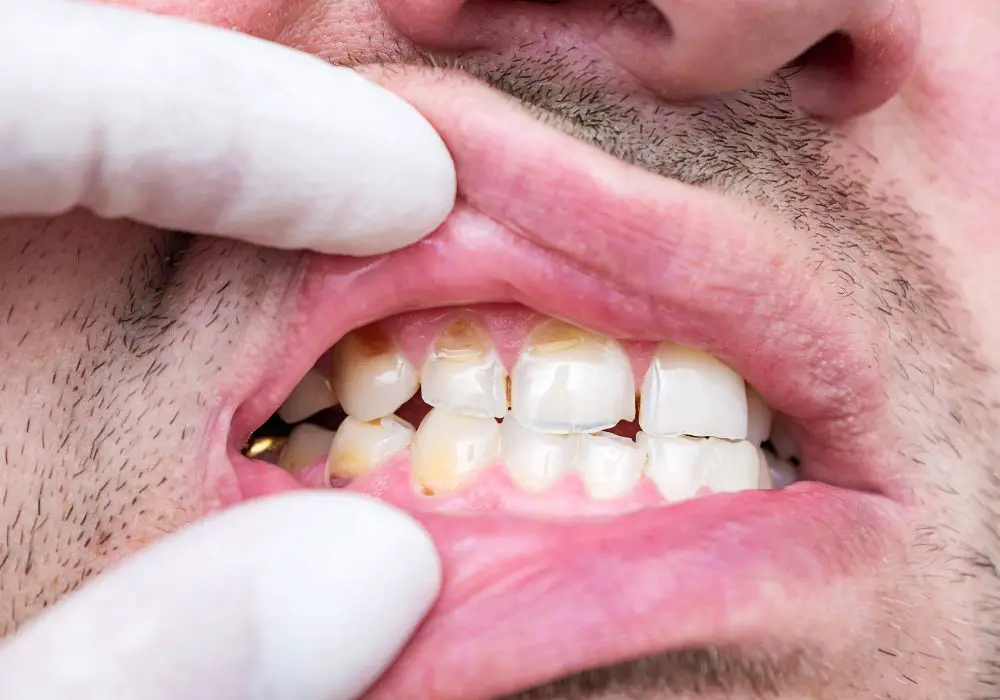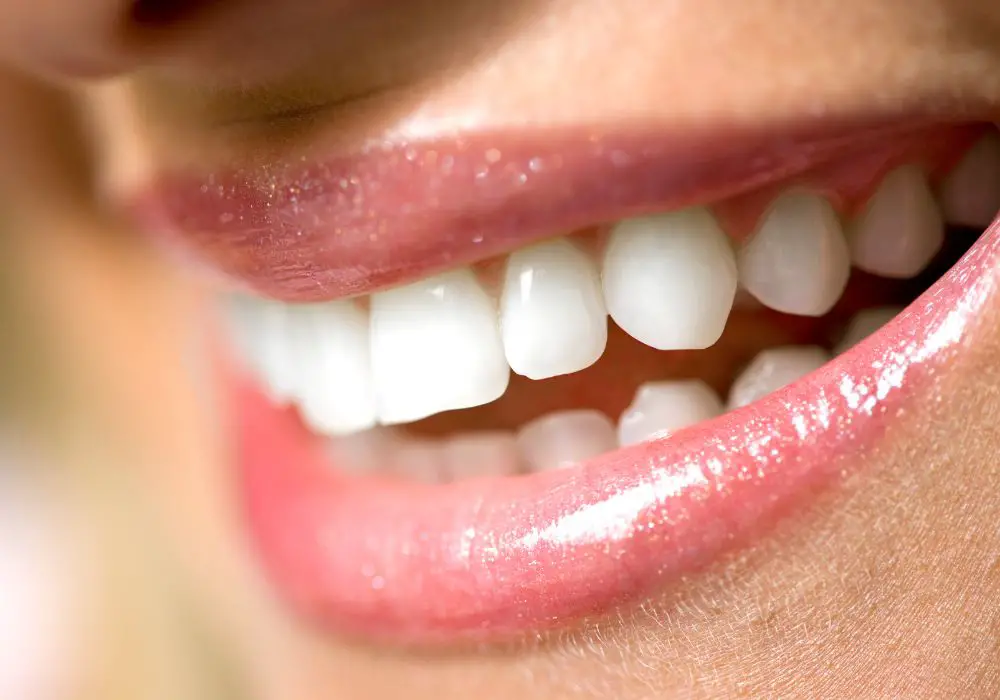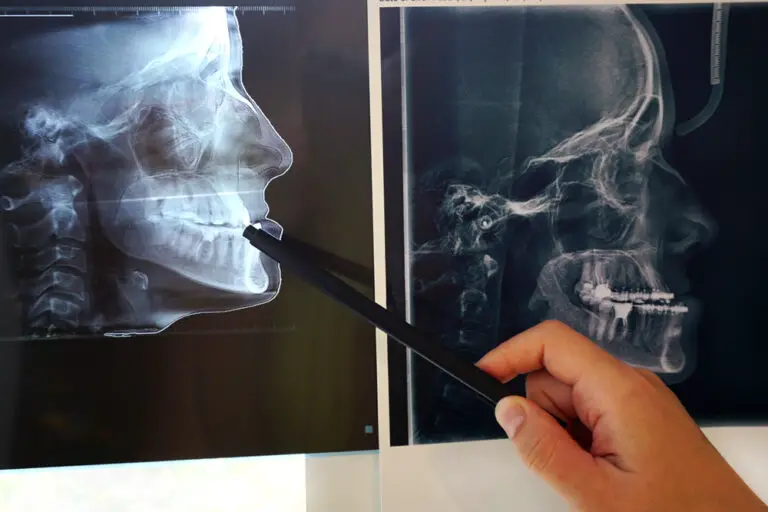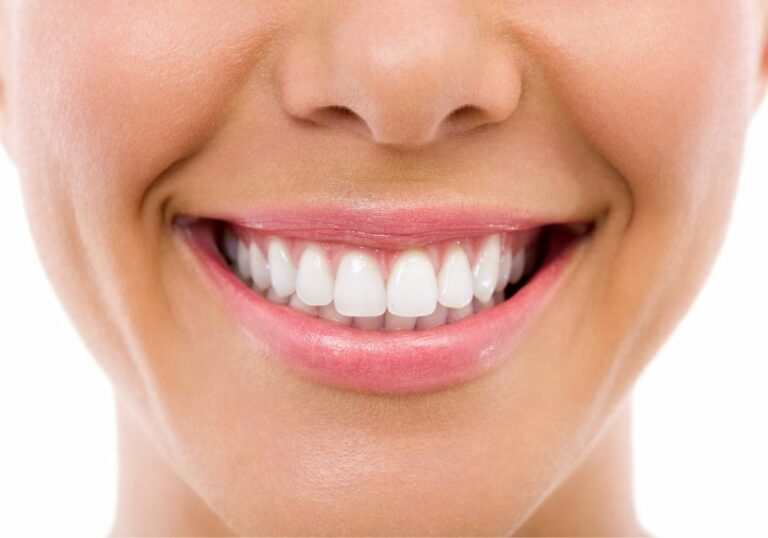Chipping a tooth can be a frightening experience. One second you’re eating or playing sports like normal, and the next you feel a crack and sharp pain. When part of your tooth fractures off, it’s hard not to panic. Can chipped teeth repair themselves? What treatment is needed to restore your smile?
This comprehensive guide explains everything you need to know about chipped teeth. Read on to learn what to do for minor and severe chips, self-repair options, when to see a dentist, and how dental professionals restore damaged teeth.
What Exactly is a Chipped Tooth?

Your teeth have multiple layers, each with different structures and functions. A chipped tooth occurs when an impact fractures off part of the hard enamel outer covering. Let’s take a closer look at the anatomy to understand why chips happen.
Anatomy of a Tooth
Teeth consist of three main layers:
- Enamel – The visible white outer portion of the tooth made of hydroxyapatite crystals. Enamel is the hardest substance in the human body. It serves as a protective barrier against damage.
- Dentin – The yellowish layer under the enamel made of collagen fibers and hydroxyapatite crystals. It has small tubules leading to the pulp.
- Pulp – The innermost layer containing the tooth’s nerves and blood vessels. The pulp provides nutrients and sensitivity to the tooth.
How Chipping Occurs
Chips and cracks happen when a strong impact breaks off pieces of the enamel. Like broken glass or a cracked eggshell, the enamel fragments under extreme pressure.
The hard enamel absorbs most of the shock first before impact forces reach the more elastic dentin. But enough trauma can penetrate through both layers, exposing the sensitive pulp.
Size of a Chip Fracture
Chips range from tiny to extensive:
- Enamel-only – A small piece of surface enamel breaks off, with no loss of dentin or pulp exposure.
- Enamel and dentin – The chip extends past enamel into the softer dentin but does not reach the pulp.
- Enamel, dentin, and pulp – The deepest chips which expose the tooth nerve and blood supply. These require immediate treatment to prevent infection entering the pulp chamber.
- Vertical root fracture – A crack extends from the crown down the tooth root, often splitting the tooth in half. Root fractures usually require extraction.
The deeper a chip goes, the higher the risk of pain, infection, and tooth loss. Minor enamel-only chips have the best chance of self-repair.
What Causes Chipped Teeth?
Many different factors can cause enamel fractures:
Trauma
Sudden impacts often chip front teeth. Common causes include:
- Sports injuries – Getting hit in the mouth with a ball, club, or other sports equipment. Football, hockey, basketball, and baseball carry high risks.
- Falls – Tripping and landing mouth-first on a hard surface. This is especially common in children.
- Fights or abuse – Blows to the mouth. Domestic violence often involves facial and dental injuries.
- Car accidents – The airbag, steering wheel, or dash can fracture teeth on impact. Wearing seatbelts helps prevent more severe oral trauma.
Hard Foods
Biting down forcefully on solid foods can lead to cracks and chips. Watch out for:
- Hard candies or ice cubes
- Popcorn kernels
- Nuts
- Cherry pits
- Fish bones
- Corn cobs or ribs
- Crusty breads, bagels, or pizza crust
- Bone-in meats
The harder you bite down, the more likely something will give – either the food or your teeth. Avoid chewing ice and other hard foods, especially if you have dental work prone to chipping like veneers or crowns.
Teeth Grinding and Clenching
Chronic grinding and clenching (bruxism) wears down tooth enamel. This loss of protective covering makes teeth more prone to fracture. Chips often correspond with the patterns of bruxism:
- Chips on front teeth – Caused by grinding back and forth
- Chips on back molars – From clenching and pressure while chewing
People often grind or clench without realizing it, especially during sleep. Ask your dentist about bite guards to protect your teeth from bruxism damage.
Poor Restorations
Dental work like fillings, crowns, and veneers can chip over time. Poor quality materials, inadequate bonding, and excessive wear all raise your risk of restoration fractures. Consult your dentist promptly if existing dental work develops cracks.
Thin Enamel
While everyone’s enamel thins slightly with age, some people naturally have thinner enamel. Causes include:
- Enamel hypoplasia – Underdeveloped enamel from birth defects or childhood malnutrition/illness.
- Erosion – Acidic foods and beverages gradually dissolve enamel over time.
- Bulimia – Frequent vomiting erodes enamel.
- Teeth grinding – Thins the enamel layer, especially on the chewing surfaces.
- Medications – Some drugs like anti-epileptics increase enamel irregularities.
- Genetics – General thinner enamel runs in some families.
Thinner enamel chips and cracks more easily with smaller impacts. Be extra careful chewing hard foods if you have naturally thinner enamel.
Can Chipped Teeth Heal Themselves?

Whether a minor chip heals on its own depends on these factors:
Size of the Chip
Very small, enamel-only chips have the highest likelihood of self-repair. Your saliva gradually smooths out the sharp edges of the fracture over time. The smaller the chip, the faster and more complete the natural healing.
Medium to large chips, or those extending into dentin, cannot heal on their own. The exposed dentin stays sensitive and prone to decay. See a dentist promptly to treat chips beyond the outer enamel layer.
Location of the Chip
Chips on the inside biting surfaces of back teeth show minimal visual impact but tend to self-heal more slowly. Saliva cannot access and remineralize these inner areas as readily.
Chips on front teeth look more unsightly but often heal faster. Your tongue helps spread saliva over the damage when talking and swallowing.
Saliva Flow and Composition
Your saliva contains calcium, phosphate, and other minerals that help reharden and smooth chipped enamel. The better your saliva flow, the faster these minerals can deposit into microfractures.
Dry mouth or certain medications that reduce saliva impede the remineralization process. This delays natural healing. Stay hydrated and talk to your dentist if you have chronically dry mouth.
Your Oral Hygiene Habits
Good oral hygiene is key for self-healing. Brushing and flossing remove debris so saliva can directly contact the enamel. Fluoride toothpaste also supports remineralization.
Poor hygiene leads to more plaque buildup. This impedes saliva from accessing the chip, delaying healing.
Health of Surrounding Teeth
Pre-existing dental decay or periodontal disease makes natural healing more difficult. Bacteria growth can impede the remineralization process and may infect exposed dentin.
Get any underlying issues treated to support self-repair of chips. For example, cavities elsewhere can be filled while monitoring a mild front tooth chip.
When to See a Dentist for a Chipped Tooth
While small chips confined to enamel might smooth out on their own, it’s still smart to have a dentist evaluate any tooth fracture promptly. Here are some key times to seek professional treatment:
The Chip Extends into Dentin
Enamel alone can partially self-heal, but exposed dentin does not repair itself. Open dentin tubules pose risks of:
- Sensitivity – Hot, cold, or sweet foods and drinks cause sharp pain.
- Decay – Bacteria rapidly infiltrate the tubules and demineralize the dentin.
- Pulp inflammation – Bacteria and debris enter the pulp, causing infection and abscess risk.
Prompt dental treatment is needed to seal and protect exposed dentin. Otherwise, you may eventually lose the entire tooth.
The Chip is Large or Very Visible
Even if the chip only affects enamel, seeing a large piece of your tooth visibly missing can be upsetting. Larger fractures also tend to self-heal more slowly.
Dentists can quickly and easily bond composites or veneers to mask large cosmetic chips with minimal tooth preparation. While not mandatory, aesthetic repairs help restore a natural smile.
You Have Pain or Discomfort
Sensitivity and pain when eating or drinking typically signify dentin involvement. The exposed tubules stimulate the nerve, causing discomfort.
Infection of the inner pulp layer can also cause throbbing pain. See a dentist right away if the chip causes lingering pain or sensitivity that over-the-counter pain relievers do not resolve.
Your Bite Feels Uneven
A fractured cusp alters your bite alignment and chewing pattern. You may notice difficulty chewing on the affected side or that your teeth no longer fit together properly.
Dentists can reshape the tooth contour for a more comfortable, even bite. Leave misaligned bites untreated and you risk tooth abrasion and jaw joint issues.
A Previous Chip Worsens
If an already treated chipped tooth deteriorates further, don’t wait to visit your dentist. The fracture likely extends deeper than the original repair addressed.
Worsening cracks also raise concern for a vertical root fracture emerging. Your dentist needs to evaluate the new extent of damage promptly.
Common Dental Treatments for Chipped Teeth
Don’t try to glue fragments back on or attempt to bond teeth yourself. See an experienced dentist for proper treatment. Options range from minimal to extensive:
Smoothing Rough Edges
For minor enamel chips with sharp edges, the dentist can gently smooth them using a diamond burr or hand instrument. This rounds out the corners for a less noticeable, pleasant feel inside the mouth.
Dental Bonding
Bonding applies tooth-colored composite resin material to fill in or cover small-to-medium sized defects restricted to one tooth. The dentist first etches the enamel then sculpts the resin into the ideal contour before hardening it with a curing light.
The composite bonds directly to the natural tooth for seamless integration. Bonding restores form and function while preserving healthy tooth structure. However, bonding stains over time and typically needs replaced every 5-7 years.
Veneers
Veneers are thin shells of porcelain or composite that adhere onto the front of teeth. They mask chips affecting the tooth’s appearance.
The dentist must first slightly shape the teeth to accommodate the veneer’s thickness. Veneers provide a highly natural-looking restoration that resists stains better than bonding. However, they require permanently removing some natural enamel.
Crowns
When over half the tooth structure is missing or the damage extends below the gum line, a crown provides the most complete and durable restoration.
The dentist files down the remaining tooth to make space for the crown cap. An impression gets sent to a lab for custom fabrication. The final crown gets securely cemented over the prepared tooth.
Crowns require the most natural tooth reduction but provide full 360-degree protection to prevent further fracturing. They typically last 10-15 years with proper care.
Root Canal Treatment
If the inner pulp chamber becomes infected due to extensive decay or trauma, you may need a root canal. This involves surgically removing the inflamed pulp, disinfecting the canals, and sealing the interior space.
A crown gets placed over the tooth afterward to reinforce the significant loss of structure. Root canals prevent having to extract the damaged tooth. However, the tooth will no longer have sensation once the nerves are removed.
Tooth Extraction
Hopefully, most chipped teeth can be saved with a restoration. However, some severe chips or vertical root fractures require extracting the tooth and considering tooth replacement options.
Your dentist will discuss alternatives like dental implants, bridges, or partial dentures if extraction proves necessary to prevent infection. Removing teeth is the last resort.
Proper Care for Chipped Teeth

If you chip a tooth, be gentle while it heals or receives treatment. Follow these tips:
- Brush carefully with a soft or extra soft toothbrush. Avoid abrasive scrubbing.
- Use desensitizing toothpaste to ease any pain or discomfort. Potassium salts help block sensitivity.
- Avoid chewing hard foods on the affected side. Only chew soft foods until restored.
- Wear a mouthguard during sports to prevent more enamel fractures.
- See your dentist regularly for checkups to monitor the chip and catch worsening cracks early.
- Get dental restorations adjusted if you notice sharp edges or high spots causing discomfort.
- Do not chew ice or hard candies. The cold and pressure risk more damage.
With diligent care, most chipped teeth can be restored for the long term. Minor chips may smooth out on their own. More extensive fractures need dental treatment but do not necessarily mean losing the tooth.
Can Chipped Teeth Fully Heal Back to Normal?
While small enamel pieces can remineralize slightly, the tooth structure cannot regenerate entirely back to normal. Enamel and dentin do not contain living cells to regrow when damaged.
However, restorations like dental fillings, bonding, veneers, crowns, and implants can make a chipped tooth look and function like new again. Modern dentistry offers many ways to repair even severely fractured teeth.
The key is promptly seeing your dentist to evaluate the ideal treatment option. With proper restoration, chipped teeth can be saved and restored for lasting results. Avoid delays in seeking care, as bad fractures rapidly worsen.
Quick action helps dentists preserve more of the natural tooth structure. Thanks to dental bonding adhesives and life-like porcelain crowns, even major chips and cracks can get fixed with minimally invasive solutions.
When to Take Action for a Chipped Tooth
Don’t wait with a chipped tooth – minor fractures quickly worsen without treatment. Even small, enamel-only chips deserve prompt evaluation, as they can signify underlying issues.
See a dentist right away if your chip involves pain, sensitivity, or visible dentin exposure. Only the outer enamel layer has any potential for self-repair. Deeper fractures into the dentin and pulp rapidly progress if left untreated.
With early intervention, dentists can effectively restore chipped teeth using minimally invasive, tooth-preserving options. Advances in dental bonding and veneers allow even significant chips and cracks to be repaired with excellent cosmetic results.
So don’t panic if you notice a fractured tooth – today’s dental treatments can resolve even extensive damage. Taking action quickly is key to saving natural tooth structure and your smile.
Frequently Asked Questions About Chipped Teeth
How long does it take for a chipped tooth to heal?
Minor enamel-only chips can naturally smooth out in around 4-6 weeks with good oral hygiene. However, the missing enamel cannot regenerate or reform.
Chips extending into dentin require professional treatment. Exposed dentin does not heal and becomes more damaged over time without intervention. See a dentist promptly for moderate or deep fractures.
What are home remedies to relieve pain from a chipped tooth?
For a mild chip causing sensitivity, rinse with warm salt water and take over-the-counter pain relievers like acetaminophen as needed. Dab the area with toothpaste formulated for sensitivity.
Avoid chewing on the side with the chip until you can see a dentist. Have the chip evaluated – you may also need antibiotics if the inner pulp is inflamed. Do not put off dental treatment.
Can you bond a chipped tooth at home?
No, chipped teeth should always be treated professionally. DIY bonding risks further tooth damage and serious complications like infection spreading to the jawbone.
Proper bonding requires etching the enamel and special curing lights to harden the resin. Improper technique leads to failed restorations and loss of remaining tooth structure. Always see a dentist.
How much does it cost to repair a chipped tooth?
Cost varies based on the size of the chip and treatment involved:
- Smoothing rough edges – $50-$200
- Dental bonding – $200-$600 per tooth
- Porcelain veneers – $925-$2500 per tooth
- Dental crowns – $800-$3000 per tooth
More complex repairs like root canals or dental implants cost more. Check your dental insurance, as many plans cover a portion of chip repairs.
How can I prevent chipping more teeth?
You can help avoid further enamel fractures by:
- Using a mouthguard for sports
- Avoiding chewing on ice, pens, nails or other hard objects
- Getting a nightguard if you grind your teeth
- Brushing with a soft or extra-soft toothbrush
- Regular dental cleanings and checkups
Prompt treatment of any chips is also key to prevent worsening cracks. See your dentist at the first sign of any tooth fracture for evaluation.






